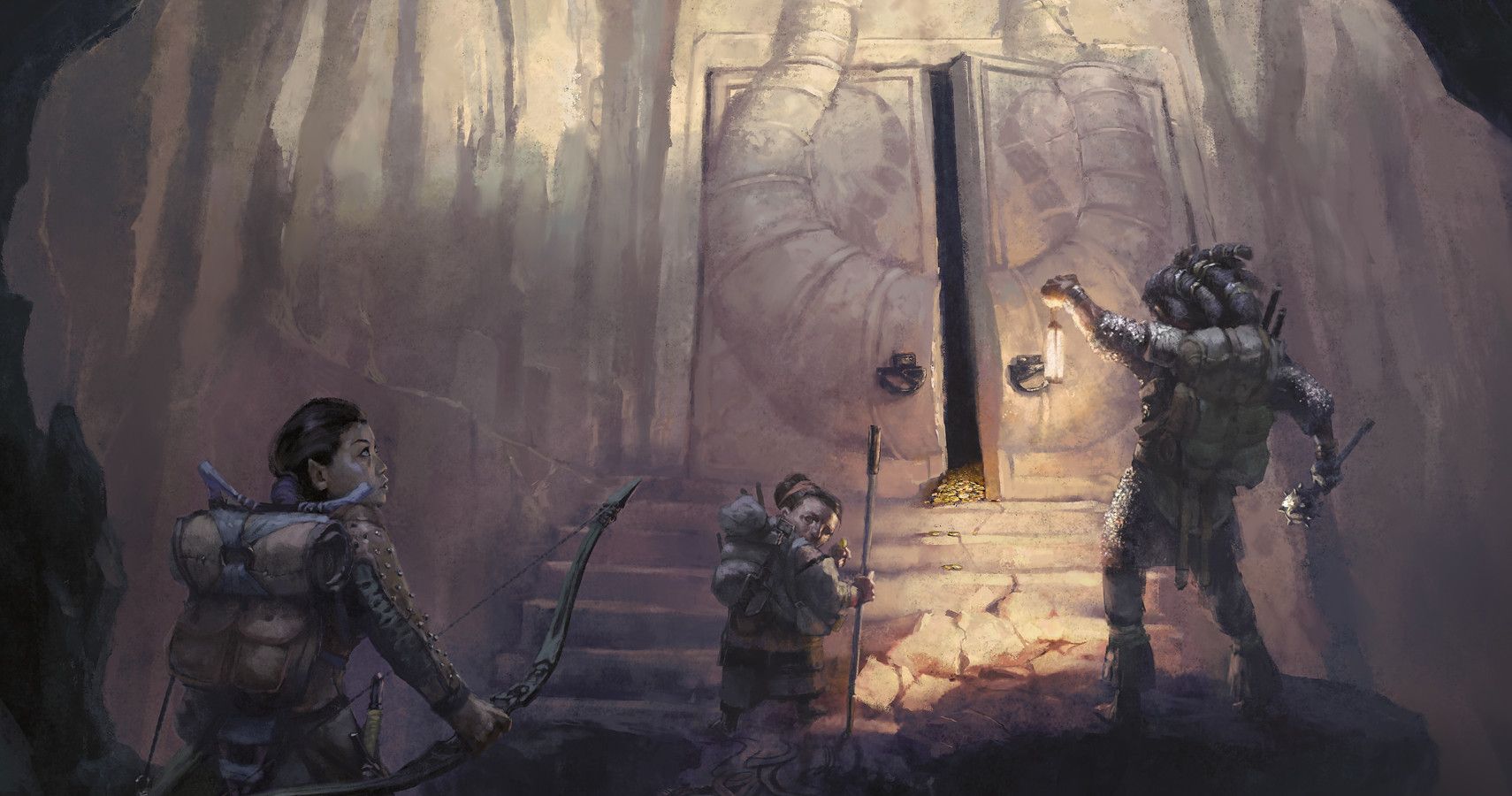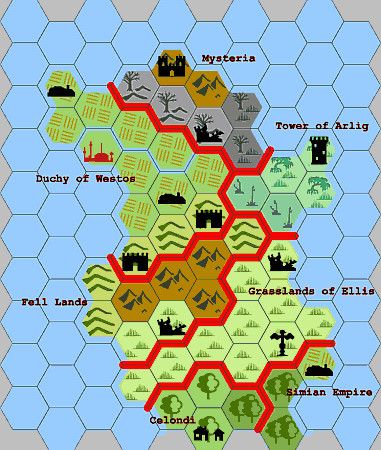Exploration has fallen so low on most Dungeons & Dragons players' radars that some might even question whether it deserves to be considered a 'pillar' of the game. But is that the fault of the rules, the players, or something else entirely? Let's take a look at this much-underutilized aspect of D&D gameplay and try to determine how a group could be handling exploration wrong (and how to try and move it back on track).
Exploration As Told By The Rules
To start with, there's a bit more to exploration than simply rolling your choice of Perception or Investigation and allowing the DM to narrate in excruciating detail. Where exploration often seems to fumble is that, unlike combat and social interaction, it has the least clear goal. In combat, players want to defeat the enemy. In social interaction, players want to solicit the desired reaction from NPCs to get ahead (or just have some fun). Exploration is the only pillar of gameplay in which the motivation lies almost solely on the players wanting to do it. They might be rewarded, or they might not, depending on where and what they opt to explore. But just like the other aspects of gameplay in D&D, exploration has rules and goals attached - in fact, if you look at hex crawls, there are actually entire D&D maps and game modes dedicated to exploration.
In hex crawls, the DM prepares a map with hexagonal grids ahead of time, then allows players to see it as a map they might have in-game. Any given hex on the grid might have a Point of Interest (POI) attached to it, usually denoted with a special icon, and players are given free reign to choose where they're going to go and how they're going to get there. Hexes might have specific encounters depending on where they are geographically - a popular strategy is to make a random encounter table and roll a die to see what players run into while traversing a tile of a specific type such as forest or river terrain. It keeps things fresh and seems more 'open world' without imposing too heavy a workload on the DM.
Making a hex grid for traveling doesn't have to be complicated either. Just like many other parts of D&D, there are plenty of free (or paid) tools available to DMs looking to make creating a grid easier. Inkscape and Worldographer are just two examples. But more to the point...will making a hex grid make exploration fun? Well no, not if the locations attached to the grids themselves are boring. World maps could be a fun way to include a sense of travel... or they could be a complete slog full of disjointed encounters while the party is en route to the main quest locations.
What DMs Need To Do For Good Exploration
Making exploration in D&D enjoyable relies on cooperation between the DM and the players. If the players breeze past all the DM's plot hooks and hint-dropping in search of the next combat encounter, of course the exploration won't be up to snuff. It's equally true that if players search every corner of a town for secrets and wind up empty-handed because the DM expected them to walk in a straight line from the town gate to the abandoned warehouse, everyone will be frustrated.
To make good exploration happen, the DM must accept that it's possible not every detail will be exposed just because they create it - and include a few of those details anyway. A player who stops and searches should, at least some of the time, uncover interesting details about the world, not just lost trinkets. Maybe they search an NPC's room and find items indicating they have a fondness for cats that makes their next social checks against that NPC easier. Or maybe they're doing a deep dive into a dungeon and find a suspiciously mislaid brick, then learn the wall is hollow and break it down to discover a secret room.
Exploration isn't the 'worst' pillar, but it is the oft-neglected middle child between combat and social interaction, and that means that players and DMs alike reap what they sow when it comes to how rewarding it is to play out exploration segments.


